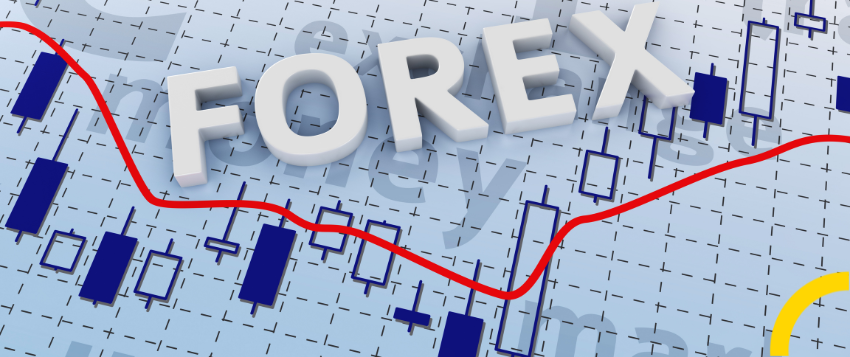After getting a grasp on the basics of forex trading, discussed in last week’s article, traders can move on to more advanced steps to enhance their trading skills and maximise their potential for profit. This article delves into the critical components of advanced forex trading, including risk management, trading psychology, and continuous learning.
Table of Contents
Implementing robust risk management

Risk management is a crucial aspect of successful forex trading. Use tools such as stop-loss orders, which automatically close a trade when it reaches a predetermined level of loss, to protect your capital. Determine your risk-reward ratio and never risk more than you can afford to lose on a single trade. Proper risk management helps you stay in the market longer and reduces the impact of losing trades. Additionally, diversify your trades to spread risk across different currency pairs and market conditions, rather than concentrating all your capital in a single position.
Mastering technical and fundamental analysis
Advanced traders need to deepen their understanding of both technical and fundamental analysis. Technical analysis involves using more sophisticated indicators, such as moving averages, Fibonacci retracements, and Bollinger Bands, to predict price movements. Fundamental analysis requires staying updated on global economic news, interest rate decisions, and geopolitical events that can affect currency values. Combining these analyses provides a more comprehensive view of the market, helping you make better-informed trading decisions. Use economic calendars to keep track of important events and releases that could impact the forex market.
Developing a comprehensive trading plan

A detailed trading plan acts as a roadmap for your trading activities. It should include your trading goals, risk management rules, criteria for entering and exiting trades, and methods for analysing the market. Stick to your plan to avoid emotional decision-making and maintain discipline. Regularly review and adjust your trading plan based on your performance and changing market conditions. A flexible but disciplined approach will allow you to adapt while maintaining a clear focus on your objectives.
Enhancing trading psychology
Emotions can significantly impact trading decisions. Advanced traders need to develop a strong psychological mindset to handle the stresses of trading. Practice patience, avoid overtrading, and learn to accept losses as part of the trading process. Maintaining a trading journal to document your trades and reflect on your decisions can help you identify patterns and improve your trading behaviour. This journal can also serve as a tool to track your emotional responses to trades, helping you develop greater emotional control and resilience.
Utilising advanced trading tools and resources

Leverage the advanced tools and resources provided by your broker. These may include advanced charting software, automated trading systems (expert advisors), and social trading platforms where you can follow and learn from experienced traders. Staying updated with market analysis and educational resources can also enhance your trading knowledge. Utilise back-testing tools to test your strategies against historical data, and consider subscribing to premium research services for in-depth market insights.
Building a network of trading contacts
Networking with other traders can provide valuable insights and support. Join local and online trading communities, attend trading seminars, and participate in forums to connect with experienced traders. Sharing experiences and learning from others can enhance your trading skills and provide new perspectives on market analysis and strategy development. A strong network can also offer emotional support and motivation, which are important for maintaining a positive trading mindset.
Mastering forex trading in South Africa requires a commitment to continuous learning and improvement. By implementing robust risk management, mastering technical and fundamental analysis, developing a comprehensive trading plan, enhancing trading psychology, utilising advanced tools, and building a network of trading contacts, you can elevate your trading skills and increase your chances of success in the forex market. The journey to becoming a proficient forex trader is ongoing, but with dedication and the right strategies, you can navigate the complexities of the forex market and achieve your financial goals.
Advanced Steps to Master Forex Trading – FAQs
What is the importance of risk management in forex trading?
Risk management helps protect capital by limiting losses and extending market participation through strategies like stop-loss orders and trade diversification.
How do technical and fundamental analysis differ in forex trading?
Technical analysis focuses on indicators like moving averages, while fundamental analysis examines global events affecting currency values.
Why is having a trading plan essential?
A trading plan guides decisions, preventing emotional trades and improving discipline through a clear strategy for entering and exiting trades.
How can a trader enhance their trading psychology?
Traders can improve by practicing patience, avoiding overtrading, and maintaining a trading journal to track emotional responses and decisions.
What advanced tools should traders use?
Traders should leverage advanced charting software, automated trading systems, back-testing tools, and premium research services.
How does networking benefit forex traders?
Networking with other traders offers valuable insights, new strategies, emotional support, and shared experiences in trading.
What are the benefits of continuous learning in forex trading?
Continuous learning helps traders stay updated with market trends and refine their strategies to adapt to changing conditions for long-term success.







